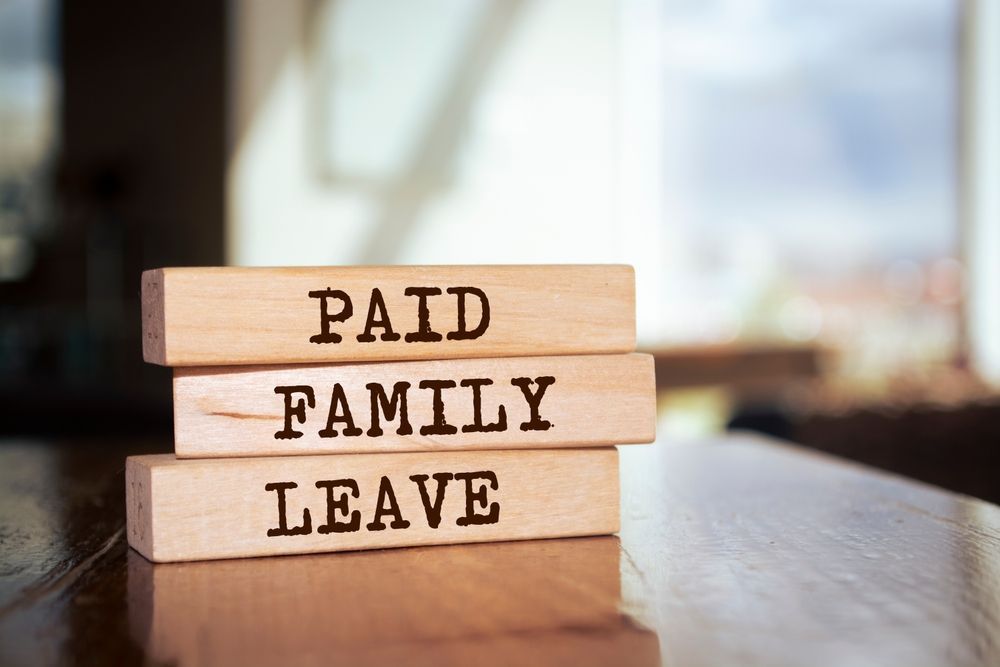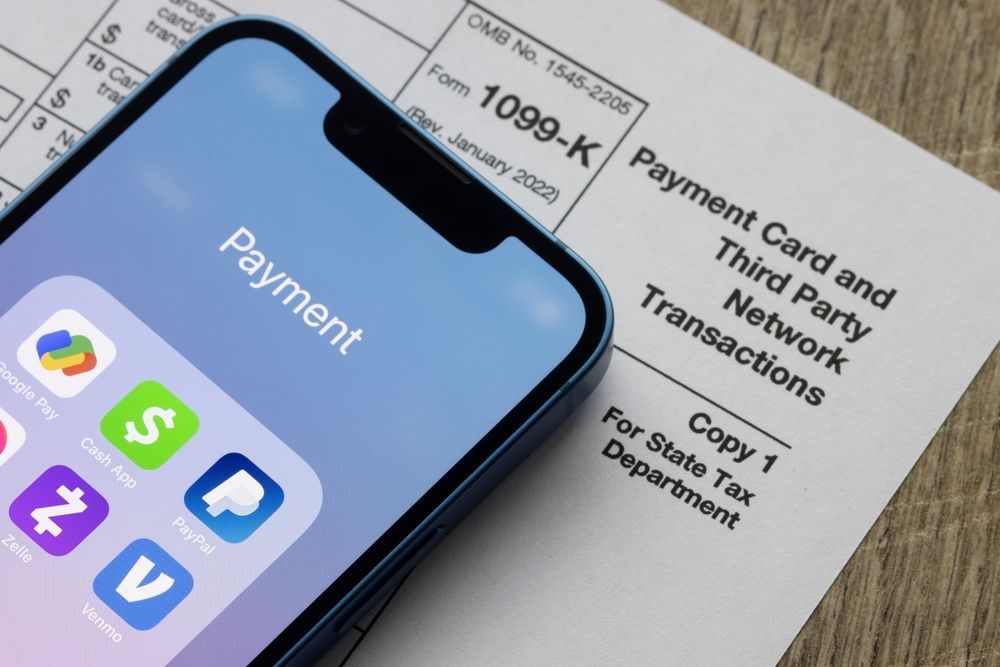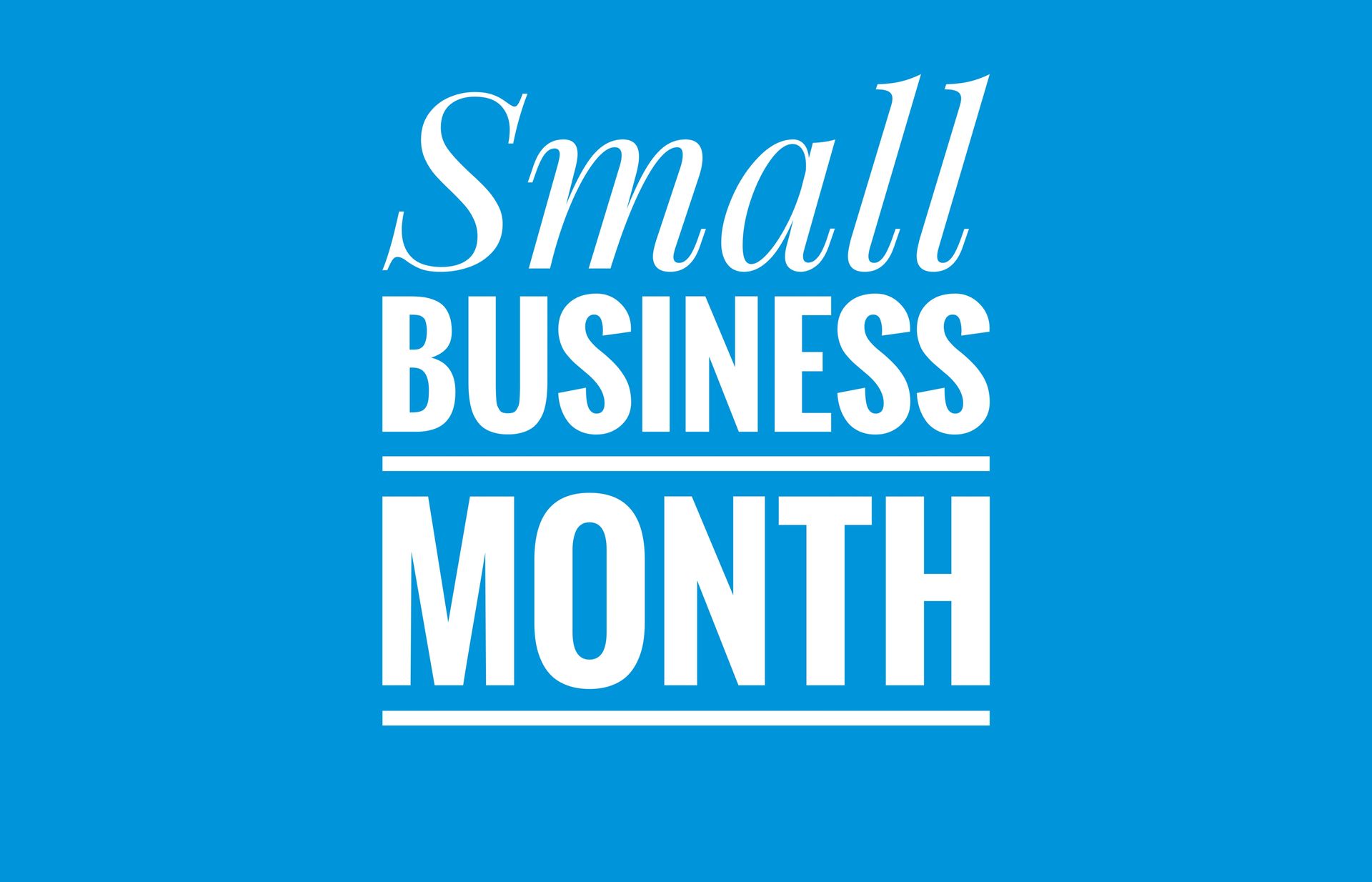CLIENT LOGIN
CLIENT LOGIN
×BLOG
TELL ME ABOUT THE HARD PART
Five Steps to Help Businesses Face, Solve & Prevent Problems
NEWSLETTER
FREE EBOOK
The Small Business Owner’s Guide to Hiring an Attorney
SERVICES
Blog

By Shavon Smith
•
March 24, 2025
In 2022, Maryland passed the Time to Care Act to establish a state-mandated family and medical leave insurance program which would provide eligible employees with job-protected paid leave to care for themselves or a family member with a serious health condition, to bond with a child, or to make arrangements for a family member’s military deployment. Under the Paid Family and Medical Leave (PFML) program, eligible employees will be paid up to $1,000 a week for up to 12 weeks (or 24 weeks under certain circumstances) of covered leave. The program will be funded through employer and employee contributions, although employers with fewer than 15 employees are not required to contribute to the program. Contributions to the program fund are scheduled to begin on July 1, 2025, with benefits becoming available starting July 1, 2026. Employers cannot outright refuse to provide paid family and medical leave but may choose between the state’s program or state approved commercial or self-insurance plan. Who are the Mandated Employers; Are There Exceptions? All employers with at least one worker in Maryland will be required to offer paid family and medical leave insurance. However, a sole owner of a sole proprietorship, LLC, C- or S-Corp who is also the only employee of that entity is not required to provide PFML; such employers may opt into the program. Who are the Eligible Employees? Employees who worked at least 680 hours in Maryland during the 12-month period before the leave is to begin are eligible for PFML. How Much Must Employees and Employers Contribute to the State Program? The rate of contributions for the state’s program will depend on the employer’s payroll size; the rate will be 0.90% of covered wages up to the Social Security cap and employers may withhold up to 0.45% of the contribution rate from the employees’ pay. Employers with less than 15 employees will have a rate of 0.45% and may withhold up to the full amount from paychecks. Private plans will set their own rates. What is the Effective Date of the PFML? Contributions are scheduled to begin in July, 2026. However, in February 2025, the Maryland Department of Labor proposed a new timeline for implementation of the PFML program, with Maryland Labor Secretary Portia Wu citing instability and uncertainties of the times; under the proposed timeline, contributions to the fund would begin on January 1, 2027 and benefits would become available as of January 1, 2028. The Maryland General Assembly has yet to take legislative action regarding the proposed timeline. Notification of Employees Employers must notify their employees of PFML when the employee is hired, once a year, and when the employer knows that an employee's leave request may qualify for PFML. What are the Penalties for Non-compliance? The Maryland Department of Labor may order employees to pay the contributions plus interest, twice the amount of contributions withheld, penalties of up to $1,000 per violation, etc. Business To-Dos Review payroll to determine which employees are eligible for PFML Determine whether to opt into the state program or a private program Set up payroll systems to manage applicable employer and employee deductions Submit wage and hour reports each quarter as required by the Maryland Department of Labor Ensure PFML eligibility is properly communicated to employees upon hire and at other required times; consider making changes to employee handbooks if applicable Stay updated on PFML changes, especially regarding dates of contribution and benefit availability

By Shavon Smith
•
January 15, 2025
This tax season, an IRS rule change may require many freelancers, contractors, gig workers, and small business owners who use third party payment platforms or online marketplaces like Cash App, Paypal, Venmo, Stripe to comply with new tax reporting requirements. The IRS’ rule, which requires third party payment platforms to issue 1099-K forms to certain users for tax reporting, was supposed to go into effect in 2021 but was postponed through 2023 and is now being implemented in phases. Originally, the rule required third party payment platforms to issue 1099-K forms for users who had 200 transactions totaling more than $20,000 within a year. The new rule eliminates the number of transactions and lowers the dollar amount threshold per year. For instance, the dollar amount threshold for the 2024 calendar year is $5,000. In 2025, the threshold amount will be further reduced to $2,500, and in 2026, the threshold amount will be $600. With this new rule change, small businesses who previously did not receive 1099-K forms can expect to receive them and to report them on their tax returns. To small businesses in states like Maryland and Virginia, which already have a $600 reporting threshold, this IRS rule change comes as no surprise. It is important to note that third party payment platforms are only required to issue 1099-K forms for business transactions—payment for goods or services, including tips, and rent payments—amounting to the dollar threshold on that particular platform; the rule does not apply to personal transactions. Further, businesses should know that business transactions on the Zelle payment platform are not subject to 1099-K reporting requirements since the platform doesn’t hold money in an account like other payment platforms. However, Zelle business transactions should be reported on Schedule C of Form 1040 for tax compliance. Due to the nature of third party payment platforms, it is imperative to ensure that your business’ 1099-K form is accurate. Small businesses should consider setting up multiple accounts to keep reportable transactions separate from personal transactions. Additionally, businesses should promptly contact their payment platform if the platform issues an incorrect 1099-K to ask for a corrected form. Note that this rule change does not alter businesses’ tax obligations in any way. The SJS Law Firm can help your small business navigate these new regulatory changes. For a complimentary consultation, please contact us at (202) 505-5309.

By Shavon Smith
•
September 23, 2024
The COVID-19 pandemic significantly changed working conditions for most workers. One of the changes the pandemic brought to work culture was teleworking, which permits employees to work from their homes or in other locations. While many employers, like Amazon, have called their employees back to the office, teleworking is now a permanent fixture of the workplace. To keep up with the evolving landscape of work, employers must ensure that they have an effective telework policy in place to facilitate productivity; below are some tips on how to do so. Include the Following Provisions in Your Telework Policy: Scope of the Policy: The policy should be used for employees’ job responsibilities and should not serve as a way for employees to take care of their independent personal obligations. If the policy is intermittent, detail how long an employee may work remotely. Employee Eligibility: State what type of employees will be eligible for remote work. For example, full-time employees, part-time employees, or those who have worked for 1 year. Request and Approval: If telework is not a standing policy, put in place a procedure through which employees can request, and supervisors can approve telework requests. It is also important to lay out the criteria for approving or rejecting such requests. Work Expectations: Set forth where employees may or may not work while remote, establish work hours when employees must be available, the method of communication with other workers, and any work policies employees must abide by; this should include any measures to protect company or client data as well as other confidential information. Equipment and Supplies: If the company will provide equipment and supplies for remote work, the policy should include the conditions of such use and their return. Failure to Comply with Policy: The company should reserve the right to deny or revoke an employee’s telework privileges in response to the company’s needs, an employee’s failure to abide by or abuse the policy, and any further consequences. The policy should also state whether or not an employee’s participation in or removal from telework is subject to a review or appeal process. Conclusion While these provisions are not exhaustive of the items to include in a telework policy, they are essential in any effective policy. The SJS Law Firm, PLLC, can help your small business draft effective telework policies. For a complimentary consultation, please contact us (202) 505-5309.

By Shavon Smith
•
August 28, 2024
As the 2024 Presidential Election draws closer, many changes will come in the months ahead depending on which candidate wins the race this November. Following President Biden’s withdrawal from the race, the DNC elected VP Kamala Harris as Donald Trump’s opponent in November. While the policies of Trump, who has previously served as the President, may be a bit more foreseeable, the U.S. has yet to experience a Harris presidency. This article explores how a Trump presidency may differ from a Harris presidency as it relates to small business. A Trump Presidency for Small Businesses Neither Trump’s campaign nor the RNC’s policy platform includes small business support programs. However, Project 2025, an initiative pushed by Republican conservatives to guide their next presidential administration, addresses small business support in government contracts. Specifically, Project 2025’s contributors push for a shift in the U.S. SBA’s operations away from its focus on historically disadvantaged businesses and toward a scheme where all businesses should qualify for support on a first-come, first-served basis. While such a scheme would prove detrimental for many small businesses, it would not be surprising since, during his previous administration, Trump attempted to defund the Minority Business Development Agency entirely. Aside from small business contracting opportunities, Trump’s platform emphasizes industry deregulation, which small businesses could benefit from. Deregulation could mean a reversal of labor regulations implemented under President Biden’s administration. For instance, some of the regulations promulgated by the Department of Labor, the Federal Trade Commission, and the National Labor Relations Board which have faced many challenges already, may be reversed or suspended under a Trump Presidency. A Harris Presidency for Small Businesses Unlike the RNC’s platform, the DNC’s draft platform, which it released in July 2024, addresses plans to support small business contracting and expansion opportunities. The platform claims that the democratic administration is “expanding access to capital, business opportunities, and training to help those small businesses; while working for a fairer tax code, to level the playing field for small entrepreneurs who have to compete against corporate giants,” including providing funds aimed at state level small business programs. Under the Biden-Harris administration, the Minority Business Development Agency is now a permanent part of the Commerce Department. While the draft platform was crafted with President Biden in mind as the 2024 DNC candidate, it is likely that Harris’ stance on these issues will not change or deviate too far from it. This is evident since as VP, Harris established the Economic Opportunity Coalition to help small businesses access financing for capital and growth. On taxes, if Harris follows in Biden’s footsteps, corporate taxes will likely increase while the administration further pursues regulatory oversight—which could bode well for small businesses especially given the wrench that the Supreme Court’s overturn of Chevron deference has thrown in the regulatory works. Conclusion Whoever wins the 2024 Presidential election, the impact will be felt by small businesses. These insights should help small businesses anticipate and better prepare for the future. We’d love to talk with you further about business planning in general! Feel free to schedule an appointment.

By Shavon Smith
•
July 23, 2024
On June 28, 2024, the Supreme Court’s decision in Loper Bright Enterprises v. Raimondo overturned its 1984 long standing precedent, Chevron v. Natural Resources Defense Council , also known as Chevron deference. The landmark Chevron deference required courts to defer to a regulatory agency’s, such as the Department of Labor and Small Business Administration, reasonable interpretation of statutes when such statutes were deemed ambiguous. The Court came to its decision after stating that Chevron undermined courts’ statutory authority to interpret the law and that agencies do not possess any special competence in resolving statutory ambiguities. Now, instead, courts will have to exercise their independent judgment but carefully consider an agency’s judgment when interpreting ambiguous statutes. The overturned decision has been met with mixed reactions as it creates uncertainty for regulated industries. How does the End of Chevron Affect Small Businesses? Uncertainty: The current regulatory scheme of notice-and-comment rulemaking ensures that both small businesses and big corporations alike are heard by federal agencies when they make rules pursuant to congressional legislation. Generally, this process fosters transparency and provides businesses with peace of mind in making business decisions based on set regulatory standards. However, now with the overturn of Chevron, the courts’ independent decision-making adds a layer of uncertainty that can prove burdensome for businesses in regulated industries. Not only this, the new decision puts small businesses at a disadvantage who may not be able to afford legal representation to challenge interpretations. Legal challenges: While the overturn of Chevron does not apply retroactively to past court decisions under the Chevron framework, this new decision opens the door for legal challenges to agency regulations across industries. For example, following the Supreme Court’s decision, a federal judge in Texas blocked the Department of Labor’s recent increase in the minimum salary threshold for some exempt employees because of concerns about the definition of exemptions and the constitutionality of the rule. Other regulations like the Federal Trade Commission’s ban on non-compete clauses are sure to come under judicial scrutiny. Conclusion The decision to overturn Chevron deference will undoubtedly have a major impact in the business field. However, until lower courts further interpret and apply the Supreme Court’s decision, the full impact is yet to be felt. The S.J.S. Law Firm can help your small business navigate these new regulatory changes. For a complimentary consultation, please contact us at (202) 505-5309.

By Shavon Smith
•
June 20, 2024
In commercial contracts, indemnification provisions serve as a tool to designate who bears the cost of potential losses or damages typically for third-party claims; these provisions are powerful because they can transfer risk from one party to another. For this reason, it is essential to negotiate and draft indemnification provisions with your business and its risk-bearing capacity, the type of transaction, the partner with whom you are conducting business, and third parties to keep the contract in mind. Parties may choose between a one-sided indemnity or a mutual indemnification where desired. You may see indemnity provisions in documents such as Non-Disclosure Agreements, Construction Contracts, Purchasing Contracts, and Commercial Leases. What is an Indemnification Provision? To indemnify means to make compensation for incurred hurt, loss, or damage. Therefore, an indemnification provision is an agreement between two (or more) parties obligating one party (the indemnifying party) to compensate the other party (the indemnified party) for losses or damages that may result from the transaction taking place. Why do Indemnification Provisions Matter? Clarity: Indemnification provisions are important because they outline the party’s obligations to each other when losses or damages are incurred, with clear parameters on who, what, where, when, and why a party to the contract must or must not act. The benefit here is a lower likelihood of misunderstanding and disputes between the parties. Having allocated their responsibilities, the parties can fully attend to the transaction at hand and confidently grow their business relationship. Protection for the Indemnifying and Indemnified Party: Because indemnification provisions can be mutual, both parties on each indemnity obligation can benefit from such risk allocation. Furthermore, indemnity provisions can be used by indemnifying parties to cap their liability to reduce their financial exposure if an anticipated loss or damage occurs. A limitation on liability promotes peace of mind since the indemnifying party knows ahead of time the (presumably negotiated) maximum it would potentially lose should the indemnified party incur a loss. What does a Typical Indemnification Provision Include? Definitions: Take advantage of the definitions section to specify whose claims the indemnifying party will cover, the types of specific events and recoverable damages, and the exclusions to those definitions. Terminology/Words of Obligation: A n indemnification clause should include words evidencing the indemnifying party’s obligation to “indemnify, defend, and hold [the indemnified party] harmless” for certain claims. Note that in some states, “hold harmless” may expand the scope of the indemnity obligation. Nexus: Nexus refers to the causal link between the subject of the contract and the harm for which the indemnity is sought. Examples of nexus phrases include: “arising from or relating to, directly or indirectly,” “solely and exclusively caused by,” and “resulting from.” Conclusion It’s common for business owners to skip over indemnity provisions in contract negotiations. However, the bottom line is that having well-drafted indemnity provisions in your contracts will promote peace of mind in conducting business by protecting each party from potential loss or damages. Remember that you should negotiate your indemnity obligations based on the types of potential losses or damages, the amount of risk you are comfortable assuming, and the transaction at hand. The S.J.S. Law Firm can help your small business draft effective indemnification clauses whether you are the indemnifying or indemnified party. For a complimentary consultation, please get in touch with us at (202) 505-5309.

By Shavon Smith
•
May 16, 2024
Did you know that May is celebrated as National Small Business Month? The SBA was signed into law by President Dwight Eisenhower in 1953 to "aid, counsel, assist and protect, insofar as is possible, the interests of small business concerns." National Small Business Month celebrates Small Businesses which are integral to the framework of commerce in America. Small Businesses support local economies by providing jobs and engaging in grass roots philanthropic efforts. The SBA uses this month, as well as others, to celebrate diverse groups of small business owners throughout the U.S. Entrepreneurs of many different backgrounds and industries can benefit from programs and resources offered by the SBA. Virtual presentations from the 2024 National Small Business Week Virtual Summit may be viewed at sba.gov. Do you own a Small Business in Maryland? There’s still time to register for the 2024 Maryland Small Business Week Awards Luncheon taking place June 6 th . This networking and awards event honors small business owners throughout the State of Maryland who have made a positive economic and charitable impact in their communities. Awards are presented to businesses owned by women, veterans, young entrepreneurs, and more.

By Shavon Smith
•
April 22, 2024
Earth Day is quickly approaching and this year’s focus is plastics. The use of plastics for packaging and bottles causes excessive waste and poses harm to drinking water, food, and ocean life. Members and patrons of your small business may be familiar with recycling and the need to reduce environmental harm. But Earth Day is more than an occasion to bring awareness to environmentalism. Celebrating Earth Day can be a great way to start sustainable practices for your small business. Sustainability can help save your small business money in the long term. Three major ways to help your small business become more sustainable include the following: Reducing Energy Usage Whether by installing energy-efficient lighting, limiting water usage, installing automated appliances, permitting remote work, or carpooling, even small ways of saving energy can have a major impact on lowering your annual budget. Reusing and Recycling Consider utilizing recycled office supplies like paper and ink cartridges. Implementing paper limits or going paperless can also save your company money. Companies like Annapolis Recycling will actually purchase excess office supplies, toner cartridges, printers, and electronics from small businesses in the DC-Maryland area. Certify your Small Business Depending on the type of small business you own, certifications may be available to indicate to customers and business partners that your company is committed to sustainability. Having an official certification can help your business garner support from other companies committed to providing organic products or environmentally friendly services. Earth Day is a great way to educate employees and the general public about the necessity for environmentalism. Methods to reduce waste, conserve energy, and recycle will vary depending on the type of small business you own, the products you sell, or the services you provide. Nonetheless, small changes and sustainability practices can significantly impact your small business. Not only will customers and business partners be aware of your sustainability efforts, they will benefit greatly from your commitment to conservation. If you need legal assistance , contact us at 202-505-5309 or info@thesjslawfirm.com to book a consultation.

By Shavon Smith
•
March 13, 2024
March heralds a celebration of women's achievements, particularly in the entrepreneurial arena. With over 7 million women-owned businesses flourishing across the United States, it's evident that women are driving forces in the economic landscape. States such as Washington, D.C., and Maryland, along with cities like Detroit, proudly host significant percentages of women-owned enterprises, showcasing the rich diversity of female entrepreneurship. The collective receipts of women-owned businesses tally an impressive $1.2 trillion, underscoring their substantial economic influence. Notably, African American women-owned firms contribute significantly, generating a substantial $36.8 billion in revenue. As Women's History Month draws to a close, it's an opportune moment to shine a spotlight on the Women-Owned Small Business (WOSB) program, which serves as a gateway for women entrepreneurs to engage with the federal government. In 2012 alone, WOSBs clinched contracts totaling $16.2 billion, constituting four percent of all small business federal contracts. The potential for growth and opportunity in this sector is vast. Whether you're an established entrepreneur or just embarking on your journey, delving into this market could catalyze transformative growth for your business. Never underestimate the potential for your business to thrive in the government contracting sphere. Federal and state governments annually procure a vast array of goods and services, offering abundant opportunities for women-owned businesses to flourish. So, who qualifies for the WOSB program? The criteria are clear-cut: the business must meet the Small Business Administration's (SBA) definition of small, with at least 51% ownership and control vested in one or more U.S. citizen women. Control extends beyond mere day-to-day operations to encompass long-term strategic planning as well. Certification serves as the gateway to accessing WOSB contracts. Whether through self-certification or third-party certification by governmental agencies or approved entities, obtaining WOSB status is pivotal for participating in contract bidding. Numerous industries stand eligible for WOSB contracts, particularly those where women-owned businesses are underrepresented or substantially underrepresented. From residential construction to transportation and design, a broad spectrum of opportunities awaits women entrepreneurs. Thankfully, a wealth of resources exists to guide women business owners through the intricacies of bidding on government contracts. Organizations such as the Women's Business Enterprise National Council, the National Association of Women Business Owners Corp., and the Small Business Administration's Office of Government Contracting offer invaluable assistance and support. If you're a small business already engaged in government contracts or aspiring to secure them, legal counsel can prove invaluable. We at The SJS Law Firm, PLLC are here to offer personalized legal assistance tailored to your business's unique needs. Reach out to us at 202-505-5309 or info@thesjslawfirm.com for expert guidance on navigating the complexities of government contracting.

By Shavon Smith
•
February 15, 2024
Even though the new year is in full swing, if you haven’t already – it’s still a prime opportunity and time to assess and revitalize your business plans and objectives for 2024. Consider the following four actions to position your business for success in the New Year and beyond: Stay Informed About Regulatory Changes: Annually, regulatory agencies make decisions impacting businesses. Ensure compliance with these changes to avoid potential civil and criminal penalties. The SBA is a good place for business owners to review all relevant laws. Meanwhile, check out our quarterly update sent to client’s last fall. Evaluate Business Achievements and Challenges: Take this moment to analyze your business performance, examining whether you achieved revenue targets and improved aspects like employee relations. Review internal practices to ensure optimal business operations. Explore Growth Opportunities: After confirming compliance and updating internal management, set new business objectives for 2024. Develop strategies to achieve sales goals, enhance client satisfaction, and improve employee retention.Establishing these targets provides clear direction for your team throughout the year. Coordinate with Professionals: Schedule meetings with your attorney, insurance agent, and tax professional. Facilitate communication between these professionals to ensure comprehensive financial planning. Review tax documents, ensure adequate insurance coverage for business assets, and address any potential risks.Completing these tasks early in the new year positions your business for a successful 2024.
FREE Consultation
Thank you for contacting us.
We will get back to you as soon as possible.
We will get back to you as soon as possible.
Oops, there was an error sending your message.
Please try again later.
Please try again later.
© 2021 The SJS Law Firm, PLLC. All Rights Reserved.

